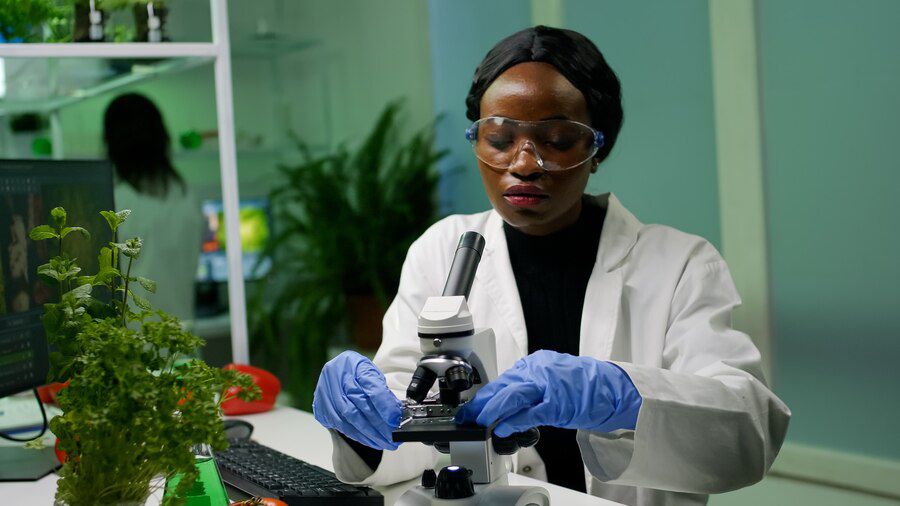A degree in biology opens up a world of exciting career opportunities, offering the chance to explore diverse fields and make meaningful contributions to society. Furthermore, as the field of biology evolves, it presents new challenges and endless possibilities for those passionate about understanding life.
Below are five career paths to pursue with a biology degree:
Biotechnology Specialist
Biotechnology specialists apply biological principles to develop products and technologies that improve human life. This can include developing new medical devices, agricultural products, or biofuels.
Additionally, as a biotechnology specialist, you can work in various industries, including pharmaceuticals, agriculture, and environmental science.
Environmental Science and Conservation
With the increasing need to protect our planet, biologists play a vital role in environmental science and conservation. Thus, career opportunities in this field include wildlife biology, marine biology, zoology, ecology, animal behavior studies, conservation biology, and environmental consulting.
Additionally, you can work as an education coordinator for environmental non-governmental organizations (NGOs) and environmental impact assessors with environmental consulting firms.
Forensic Science
Forensic science is an exciting field where biology meets the legal system to help solve crimes. By applying biological principles, forensic scientists analyze physical evidence from crime scenes to uncover important details that can lead to solving cases. This might include examining DNA, blood samples, or other biological materials found at the scene.
There are several career options within forensic science. Forensic biologists, for example, study biological evidence to identify suspects or victims. Additionally, crime lab analysts work in laboratories, using various scientific techniques to analyze evidence and produce reports for law enforcement. Furthermore, DNA analysts specialize in examining genetic material, which can be critical in proving someone’s involvement in a crime.
Healthcare
A biology degree also opens up several opportunities in the healthcare field. This degree gives you a strong foundation in understanding how the human body works, which is essential for many healthcare professions. Many biology graduates choose to become doctors, nurses, or physician assistants.
Other graduates may find their calling in medical research, working to discover new treatments and cures for diseases. Furthermore, public health is another important area, where you can work on preventing illnesses and promoting healthy lifestyles within communities. Additionally, healthcare administration is an option for those interested in the organizational side of healthcare, ensuring that hospitals and clinics run smoothly.
Education and Science Communication
For those who love biology and enjoy sharing their knowledge, a career in education or science communication can be very fulfilling. Biology majors can become teachers, instructing students at different levels, from elementary schools to universities, and helping to inspire the next generation of scientists.
Additionally, roles such as science writers, journalists, museum curators, and outreach coordinators are essential in making complex scientific ideas understandable and engaging for everyone.
Conclusion
Having a biology degree allows you to work in different fields that can suit a wide range of interests and skills. Whether you want to work in biotechnology, preserve the environment, care for the sick, solve crimes, or educate the public, a biology degree provides the foundation you need to succeed and make a meaningful impact in your chosen field.
Contact Purplebook.ng today to assist you in your study abroad journey. Don’t forget to subscribe to our newsletter to gain access to scholarship opportunities and available programs.
Stay up to date by following us on Instagram, Facebook, LinkedIn and Twitter.




